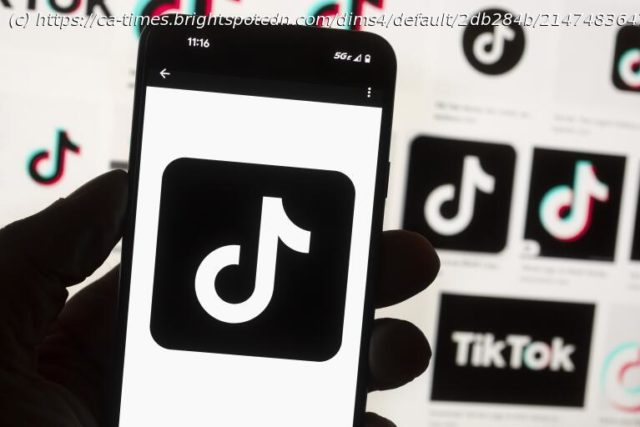The House’s overwhelming vote to ban TikTok unless it is freed from Chinese control suggests that a ban might be coming soon. But it’s not that simple.
The House of Representatives’ lopsided vote Wednesday in favor of a bill banning TikTok in the U.S. unless it is freed from Chinese control suggests the wildly popular short-video app could soon join Netscape and Myspace in the dustbin of history.
But the situation is far more complicated than that.
Policymakers agree that TikTok poses unique privacy and security threats because of the Chinese government’s influence over its owner, Beijing-based ByteDance. But the app has a powerful, albeit newly converted, backer in former President Trump, meaning that Republicans who would ordinarily support any bill to lessen Chinese influence are torn on the TikTok proposal.
Beyond that, TikTok captures the attention of an estimated 150 million Americans each month, roughly half of whom are active users, making it one of the most popular apps in the country — despite concerns about privacy, misinformation and harm to young users. The potential ban has drawn fiery objections from across the country, including from entrepreneurs, small businesses and marketers who say it would be a financial shock.
Some opponents of a ban have called it a violation of the 1st Amendment. Others wondered why TikTok was being singled out as a threat, considering how many apps hoover up their users’ personal data. And some argued that the bill would benefit only U.S. tech giants Meta, the owner of Facebook and Instagram, and Alphabet, the owner of YouTube.
Here’s a quick rundown of what’s happening and why, and what it means for TikTok users.
The House-passed bill seeks to do the same thing Trump sought to do as president: take TikTok out of the hands of a Chinese company subject to Chinese law. The Trump administration went so far as to ban TikTok in the United States in 2020. That order was blocked by two federal courts, however, which held that the administration had overstepped its authority.
ByteDance, an internet-focused, venture-capital-funded startup founded in China in 2012, owns 100% of TikTok. Although outside investors control 60% of ByteDance, according to Axios, the Chinese company retains operational control.
The new bill, which sped through the House, would prohibit companies from distributing, maintaining or updating a “foreign adversary controlled application,” or providing internet hosting services for companies that do any of those things. It defines “foreign adversary controlled application” as ByteDance, TikTok and its successors, although it would give the president the power to name other social media and communications apps with 1 million or more users that are controlled by people residing in a “foreign adversary country.”
If passed by the Senate and signed into law, the measure would give ByteDance 180 days to end Chinese control, which would require it to limit Chinese investors to a 20% stake in the company. That would probably require ByteDance to spin off TikTok into an independent company with more limited Chinese investment.
If ByteDance did not comply, the bill would require it to let users retrieve all their data, including all information about their preferences, views and uploads, in a format that could be transferred to another social media app.
According to Pew Research Center, 33% of U.S. adults said last year that they use TikTok. That’s a lot of people, yet it pales in comparison with the number using other major social media platforms. According to Pew, 83% of U.S. adults said last year that they use YouTube and 47% said they use Instagram.
Young people are far more likely to use TikTok than their parents, but even they make heavier use of YouTube and Instagram. According to Pew, 62% of 18- to 29-year-olds say they use TikTok, as do 63% of 13- to 17-year-olds.
“To me, TikTok is modern-day television and so any kind of disturbance of it would really hurt people — not just creators — because people really enjoy it,” said television personality Foodgod, formerly known as Jonathan Cheban.
Домой
United States
USA — Political Congress is threatening to ban TikTok. Here’s what you should know






